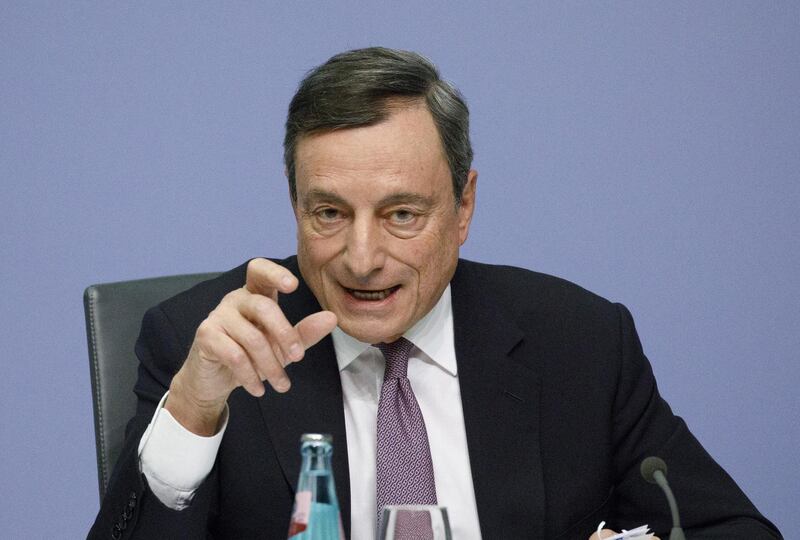The European Central Bank has to end its quantitative easing as soon as possible, according to ECB Governing Council member Klaas Knot, who said there is not a single reason anymore to continue with the programme.
“The programme has done what could realistically be expected of it,” Mr Knot, who also heads the Dutch Central Bank, said in an interview on the television talk show Buitenhof on Sunday.
The ECB is inching closer to unwinding unprecedented stimulus. At their December meeting, officials held out the prospect of a change in policy language early in the year, and some governors have since expressed their favour for taking a first step in March. While President Mario Draghi said last Thursday that confidence in a sustained pickup in inflation has increased, patience and persistence are still warranted as progress so far remains muted.
_______________
Read more:
[ China's yuan firms up further post Trump comments ]
Foreign exchange rates react to Mnuchin, Hammond comments on dollar, pound
Gold could climb to four-year high of $1400 an ounce, analysts say
_______________
"The programme is fixed until September," Mr Knot said, with Mr Draghi's reasoning being that the central bank does not have to commit yet to what will happen after that month. "We don't have to communicate yet that it will be over after September, but I think that's where we're headed." He said there is enough proof to make that clear.
The ECB earlier stuck by its plan to continue buying €30 billion ($37bn) of assets a month until at least the end of September, and has reiterated that interest rates will stay low well beyond that.
Inflation in the euro area probably slowed to 1.3 per cent in January, according to a survey of economists before a report on Wednesday. On Tuesday, data will probably show a 19th consecutive quarter of expansion at the end of 2017.
Mr Knot said the lack of commitment to any communication by the ECB as to what might happen to the QE programme beyond September could have a dampening affect on the euro. A 6 per cent surge in the euro since mid-December is threatening to become a thorn in the economy’s side if it curbs exports and damps prices. The rally was fuelled by US Ttreasury Secretary Steven Mnuchin’s remarks last week that appeared to welcome a weaker dollar.
Since then, policymakers including ECB president Mr Draghi, executive board member Benoit Coeure and Bank of France Governor Francois Villeroy de Galhau have politely reminded US officials of a global commitment to refrain from targeting exchange rates to gain a competitive advantage.






